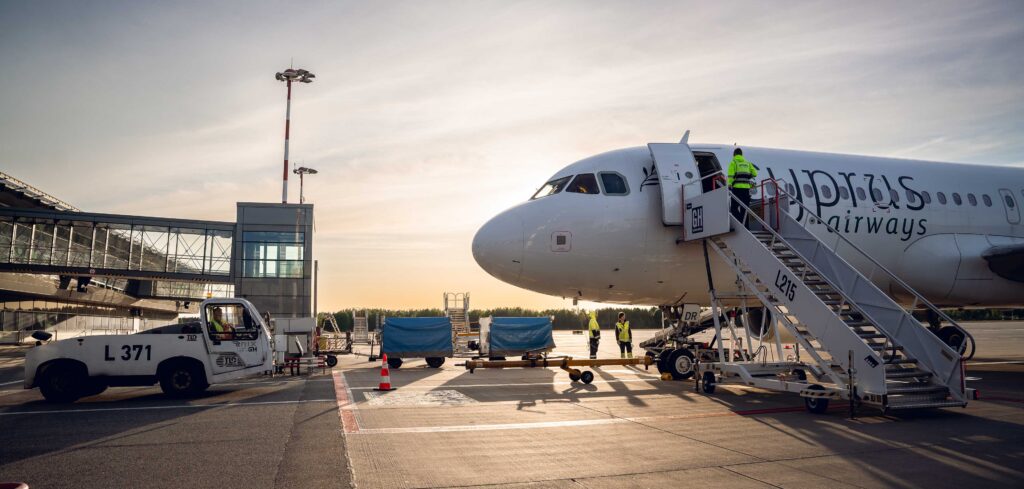In the next three years, Riga Airport and the Lithuanian airport company Lietuvos oro uostai will upgrade the electrical supply systems of their aerodromes using €3.65m (US$3.9m) of funding from the European Union (EU).
This finance from the EU fund program – named CEF 2 Transport – Alternative Fuels Infrastructure Facility – Zero Emissions – will cover 50% of the total costs of the project. Within this investment, €1.79m (US$1.93m) has been allocated to Riga Airport, and €1.85m (US$1.99m) to Lietuvos oro uostai. The companies will invest the same amount themselves.
The electrical supply infrastructure modernization project at Riga Airport will reconstruct the electrical network from the current 10kV to a 20kV network, and install a solar panel park on the roofs of several airport buildings to generate renewable energy. The construction of electric charging points on the apron and technical area of the aerodrome will support the replacement of the airport’s internal combustion vehicles with electric vehicles by 2027, and ensure the availability of renewable resources for charging electric vehicles for the airport and other passenger service companies working at the airport.
Laila Odiņa, chairperson of the board of Riga Airport, commented, “The goals of airport climate neutrality and environmental sustainability are to significantly reduce the environmental impact of all airport-controlled work processes in cooperation with other service providers at the airport. The modernization of the electrical supply system and the availability of renewable energy resources is an important step to achieve climate neutrality of the airport by 2050 in accordance with the EU’s Green Deal and the common goals of the EU’s climate neutrality, as well as the ACI Europe Net Zero 2050 initiative, which we have joined. We are happy to implement this project as a leading partner together with our closest neighbors – the Lithuanian airports.”
Arnas Dumanas, director of the development department at Lithuanian Airports, said, “This funding opportunity will allow us to develop electric vehicle charging infrastructure at various parts of Kaunas and Vilnius airports. In parallel, we will invest in ground power units specifically designed for aircraft. These are very important steps that will bring the organization closer to the ambitious goals of the net zero strategy.”
Read more of the latest sustainability updates from the passenger terminal industry, here.

